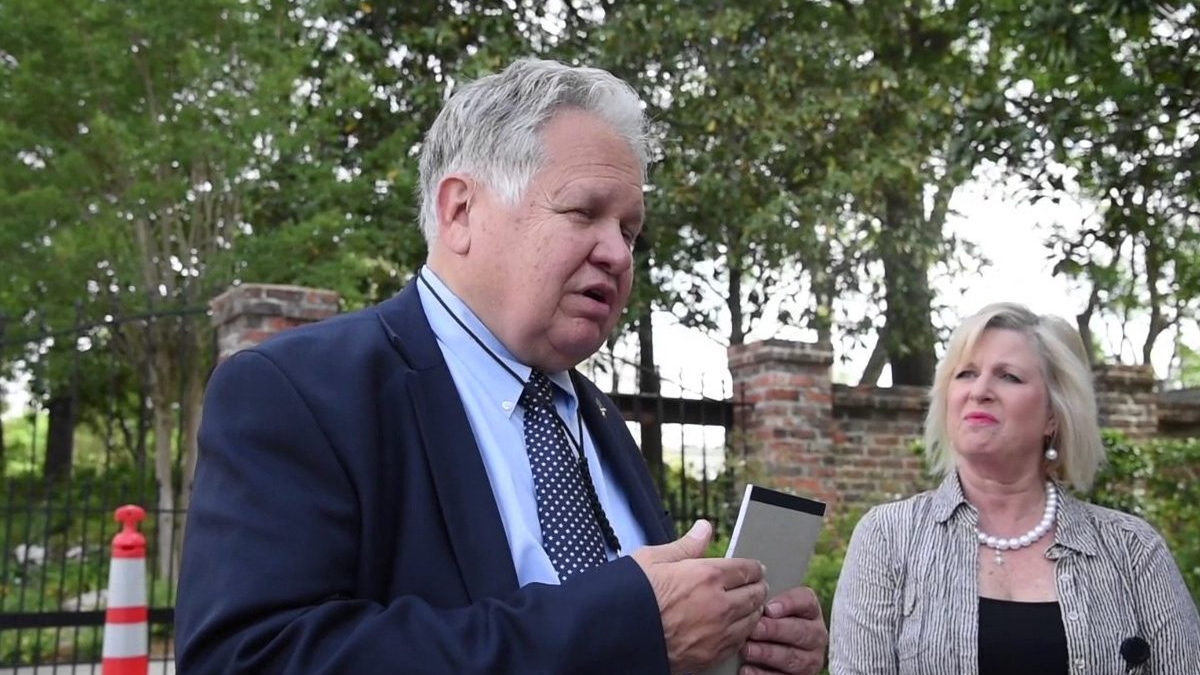Monday, Alabama State Auditor and U.S. Senate candidate Jim Zeigler released a plan to fund Alabama’s road and infrastructure needs without raising fuel taxes on Alabama motorists.
Zeigler calls his proposal “Plan Z,” which he said stands for “zero tax increases and zero congestion on our roads.”
“Plan Z can provide about $900 million in new road construction funds from present revenues.”
Zeigler released copies of Plan Z to the media on Monday.
The state Legislature convenes March 5 for the 2019 regular session. The Legislature is expected to introduce controversial legislation increasing the gasoline and diesel fuel taxes to finance a bevy of new roads and infrastructure spending projects. The specific bill or proposal, however, still has not been released to the public for public comment.
Zeigler is calling for the Legislature to stop diverting $63.5 million a year from the current highway fund to the courts and to state troopers. The Legislature has diverted almost $600 million from roads and bridges over the last 10 years. Zeigler would then use the $63.5 million a year to pay for a 20-year $900 million bond issue for infrastructure.
Zeigler’s plan would direct that the entire bond issue proceeds to actual road work and would also conduct a full management audit of the Alabama Department of Transportation.
Now, that creates a problem in how the Legislature would make up the for $63.5 million hole in the state general fund.
Zeigler, an attorney, suggests that this diversion may be a violation of Amendments 93, 354, et. al. of the Constitution of Alabama:
Amendment 93. Expenditure of Fees or Taxes Relating to Use, etc., of Vehicles and to Fuels Used for Vehicles.
“No moneys derived from any fees, excises, or license taxes, levied by the state, relating to registration, operation, or use of vehicles upon the public highways except a vehicle-use tax imposed in lieu of a sales tax, and no moneys derived from any fee, excises, or license taxes, levied by the state, relating to fuels used for propelling such vehicles except pump taxes, shall be expended for other than cost of administering such laws, statutory refunds and adjustments allowed therein, cost of construction, reconstruction, maintenance and repair of public highways and bridges, costs of highway rights-of-way, payment of highway obligations, the cost of traffic regulation, and the expense of enforcing state traffic and motor vehicle laws.”
The Legislature argues that the diversion is covered under that last part: “…the cost of traffic regulation, and the expense of enforcing state traffic and motor vehicle laws.”
Zeigler said the $900 million 20-year bond issue for infrastructure could be used standing alone or as matching state share of federal funds, providing leverage. Zeigler said that ALDOT is a large agency.
“If the public is to be asked to pay a higher tax rate for gasoline or is to be liable for a 20-year bond issue, the public expects to be confident that the funds are being wisely and prudently spent by ALDOT,” he said.
Zeigler said the $63.5 million being diverted can be made up from revenue growth.
“The state’s economy is growing and is expected to continue growing,” Zeigler said. “As a result, state revenues have grown and are expected to continue to grow. These additional revenues can partially offset the $63.5 million loss by blocking the diversion.”
Zeigler also proposed a new tax on unclaimed gift and cash cards and “breakage” of cards.
Tens of millions of dollars each year are going to issuers of gift cards and similar cash purchase cards from unused cards. When the cardholder does not redeem the card, the issuer receives an unearned windfall. The largest of the issuers are out-of-state corporations such as Wal-Mart and Target. Also, when the cardholder uses the card, it is almost always for a different and slightly lower amount than the full value. For instance, the holder can pay for an $18.23 purchase with a $20 gift card. The remaining amount is often never used. This is called “breakage.” Issuers make millions each year by simply profiting by a windfall from the breakage.
“The Legislature can pass a bill making the balance on unused cash cards and breakage go to the state general fund,” Zeigler said. “This costs consumers nothing as they have already allowed the amounts to go unused. A consumer who does not want his card balance to go to the state can remedy this by fully using his card. The unused amounts could “escheat” to the state general fund after the expiration date of the card, when the customer would have lost out anyway. If there is no expiration date, the amount escheats to the state general fund after an established time, example, two years from issuance.”
Zeigler said that this would work like existing state law for unclaimed property, including forgotten bank accounts.
Zeigler suggested that this additional revenue could make up for a substantial amount of the $63.5 million lost to the general fund by stopping the diversion of highway funds.
He also suggested that if administrative costs of most state agencies were cut an average of about 1.5 percent — not across the board, but on average — it would generate the remainder of the $63.5 million. Certain agencies would be protected from this cut, such as Medicaid and others that receive substantial federal matching dollars.
Zeigler said the State Auditor’s office was slashed under the final two administration budgets under former Gov. Robert Bentley, and the State Auditor was cut 28.5 percent from an already lean budget. Yet, by squeezing every dollar, the office stayed current on all audits. Zeigler said that a mere 1.5 percent cut would have been easy for the State Auditor’s office.
Zeigler is in his second term as state Auditor and has announced that he is exploring running for the U.S. Senate seat currently held by Doug Jones.





















































